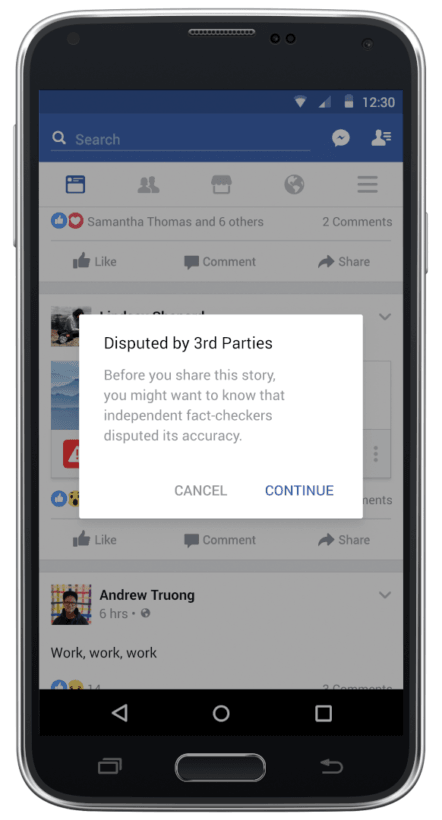Fake news has become a bigger problem than ever in 2016, and Facebook’s been at the center of it as the platform where most people share stories. But now it’s actually doing something about it.
The company today announced a series of steps it’s taking to combat the spread of fake news stories. First up the company is making it easier to report fake news. Just click on the upper right hand corner of the post, and you’ll have an option to report a story as fake. You can also message the person who posted the story, or block them altogether if you’d rather have none of that.

But the bigger move is that Facebook is now working with third-party fact-checking agencies operating under Poynter’s International Fact Checking Code of Principles. Facebook says its using community reports and “other signals” to send potentially fake articles to fact checking organizations. If designated fake, the post will be flagged as disputed, and may appear lower on your news feed.
Moreover, Facebook will provide a link to the correct information. That’s important, as even if a story is flagged as fake, there’s a chance someone might choose to ignore the flag or forget it over time. You’ll still be able to share potentially fake stories, but you will be warned of their falsehood.

The company has also noticed that fake articles are often shared significantly less than others once read (compared to sharing based off of the headline alone). The company will test using outliers that exhibit these share patterns as a sign of fake news, and automatically downranking such them.
Finally, the company says it’s working on reducing financial incentives for fake news sites. It says it’s eliminated the ability to spoof domains, and is looking to enforce its news policies with shadier publishers to reduce their ad revenue, although it’s not saying how.
Of course, Facebook won’t be able to catch all the fake news, and news that straddles the line by bending or exaggerating the truth will likely get through as well. Still, it’s a welcome step in the right direction, and if you want tips on avoiding fake news, check out our guide here.
Get the TNW newsletter
Get the most important tech news in your inbox each week.




